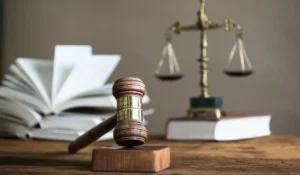Navigating the legal landscape can be intimidating, especially when you’re unfamiliar with the process. Whether you’re facing family disputes, criminal charges, or corporate matters, having sound legal advice can make a world of difference. In this guide, we’ll explore essential legal advice from experts that can help you understand your rights and choose the right lawyer for your needs. From finding free resources to understanding the importance of lawyer specialization, https://noticviralweb.blogspot.com/2024/04/consejos-de-un-abogado.html provides a complete roadmap to guide you through your legal journey.
Understanding the Legal Landscape
Before diving into legal issues, it’s crucial to understand the broader legal landscape. Laws differ from one jurisdiction to another, and understanding your specific legal context will make navigating your case easier. Legal professionals have the knowledge and expertise to help you understand local regulations, your rights, and the potential implications of your situationThis understanding will provide you with a strong basis for making well-informed choices.
The Role of Technology in Choosing the Right Lawyer
In today’s world, technology plays a huge role in almost every aspect of our lives, including finding the right lawyer. Websites like https://noticviralweb.blogspot.com/2024/04/consejos-de-un-abogado.html provide valuable resources for individuals seeking legal representation. By browsing lawyer rating sites, checking online reviews, and using legal consultation apps, you can gather essential information about potential lawyers and make an informed decision.
Legal technology also makes it easier to understand a lawyer’s expertise and track record. With just a few clicks, you can learn about their success rate, areas of specialization, and what past clients have to say. This is incredibly important when making the best choice for your legal situation.
How to Choose the Right Lawyer
Choosing the right lawyer is crucial to achieving a positive outcome in your case. Whether you’re dealing with criminal defense, family law, or corporate legal matters, selecting a lawyer with the right experience will set you on the path to success.
Types of Lawyers and Their Specializations
Different legal issues require different expertise. A lawyer specializing in criminal defense won’t be as effective in a family law case, and vice versa. Here’s a quick overview of lawyer specializations to help you choose the right one:
- Family Law Lawyers: Handle issues such as divorce, custody, and property settlements. Personalized legal advice is crucial in family law to address emotional and financial impacts.
- Criminal Defense Lawyers: Specialize in defending individuals accused of crimes, navigating court proceedings, and protecting clients’ rights.
- Corporate Lawyers: Manage business-related matters like contracts, compliance, and liabilities. Their advice helps prevent costly mistakes for businesses.
- Alternative Dispute Resolution (ADR) Specialists: Focus on mediation and arbitration to resolve conflicts without court involvement.
By understanding these specializations, you can ensure you hire a lawyer who is well-equipped to handle your case.
Warning Signs to Look Out for When Selecting a Lawyer
Not all lawyers are created equal, and there are certain warning signs you should watch out for. If a lawyer seems disinterested, lacks experience in the specific area of law you need, or is not transparent about fees, you may want to keep searching. Your lawyer should inspire confidence, communicate clearly, and have a proven track record of handling cases like yours.
The Importance of Lawyer Specialization
Law is an incredibly vast field, and no lawyer can be an expert in every area. That’s why lawyer specialization is so important. Choosing a lawyer who specializes in the type of case you’re dealing with will increase your chances of a successful outcome.
For example, if you’re facing criminal charges, you need a criminal defense lawyer who understands the nuances of criminal law, rather than a general practitioner. Specialization ensures that your lawyer is well-versed in the relevant laws, regulations, and procedures that will impact your case.
Legal Fees and What to Expect
Understanding legal fees can be tricky, but it is an important part of the hiring process. During your initial consultation, make sure to ask about the lawyer’s fee structure. Legal fees can vary based on a lawyer’s experience, the complexity of the case, and the amount of time they expect to spend working on it.
Most lawyers will provide a clear breakdown of their fees, whether it’s an hourly rate, a flat fee, or a contingency fee (in which they get paid only if they win your case). By understanding their fee structure, you can avoid surprises down the road.
Client Rights in Legal Representation
As a client, you have rights when engaging with legal services. Lawyers are bound by professional ethics to provide transparency, clear communication, and loyalty to their clients. You have the right to ask questions, stay informed, and receive regular updates on your case.
A good lawyer will keep you in the loop, explain your options, and help you understand the potential outcomes. If a lawyer fails to uphold these responsibilities, it’s a sign that you might need to find a new one.
Exploring Alternative Dispute Resolution (ADR)
Not every legal dispute has to be resolved in court.Alternative Dispute Resolution (ADR) methods, such as mediation and arbitration, can provide faster and more amicable solutions. ADR allows both parties to have more control over the outcome of their dispute.
- Mediation: A neutral third party assists both sides in reaching a mutual agreement.
- Arbitration: Involves a third party making a binding decision on the case, similar to a judge.
ADR is particularly useful for family disputes and corporate matters where maintaining a positive relationship is important.
How to Use Free Legal Resources Effectively
Before hiring a lawyer, you can utilize free legal resources to get a better understanding of your case. Websites like https://noticviralweb.blogspot.com/2024/04/consejos-de-un-abogado.html offer valuable insights and advice from experienced legal professionals. Public legal aid services, community legal clinics, and online resources can provide a wealth of information to help you make informed decisions.
These resources can also help you prepare for your initial consultation, ensuring you ask the right questions and understand the basics of your situation before seeking professional help.
Preparing for Your Initial Consultation
The initial consultation with your lawyer is a critical step in building your case. This is your opportunity to discuss the details of your case, ask questions, and decide if the lawyer is the right fit for you.
Gathering Relevant Documents
To get the most out of your initial consultation, bring all relevant documents with you. This includes contracts, letters, emails, or any other paperwork related to your case. Providing these documents will help the lawyer assess your situation more accurately and provide better advice.
Creating a List of Questions
Prepare a list of questions to ask the lawyer during your consultation. This will help you evaluate their experience, understand their approach, and get a sense of how well they communicate. Don’t be afraid to ask about their experience with similar cases or how they plan to handle your specific situation.
The Power of Being Prepared
Preparation is key to success in any legal matter. By gathering information, understanding your rights, and maintaining open communication with your lawyer, you can approach your case with confidence.
Steps to Effective Preparation
- Gather All Relevant Information: Collect all necessary documents and details related to your case.
- Research Your Legal Rights: Understand your rights and responsibilities to make informed decisions.
- Communicate Clearly with Your Lawyer: Keep your lawyer informed of any developments and ask for regular updates.
Staying Calm and Confident
Legal matters can be stressful, but staying calm and confident will help you navigate the process more effectively. Trust your lawyer’s expertise, but also take an active role in your case by staying informed and involved.
Conclusion
Navigating the legal system can be challenging, but with the right guidance, you can achieve the best possible outcome. https://noticviralweb.blogspot.com/2024/04/consejos-de-un-abogado.html provides valuable advice to help you understand your rights, choose the right lawyer, and prepare for your legal journey. Remember, being informed, proactive, and prepared are the keys to success in any legal matter. With a specialized lawyer by your side, you can confidently face any legal challenge that comes your way.

















